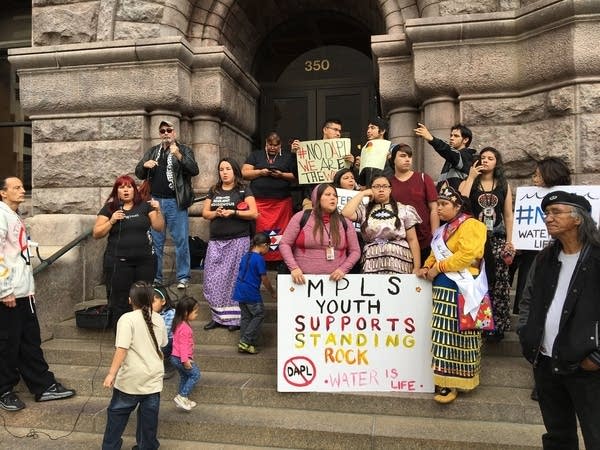Demonstrators echo N.D. pipeline protest at Minneapolis City Hall

A crowd gathers outside Minneapolis City Hall Friday to protest Minnesota law enforcement's involvement in the Dakota Access pipeline protest taking place near the Standing Rock Sioux Tribe reservation in North Dakota.
Brandt Williams | MPR News
Go Deeper.
Create an account or log in to save stories.
Like this?
Thanks for liking this story! We have added it to a list of your favorite stories.


